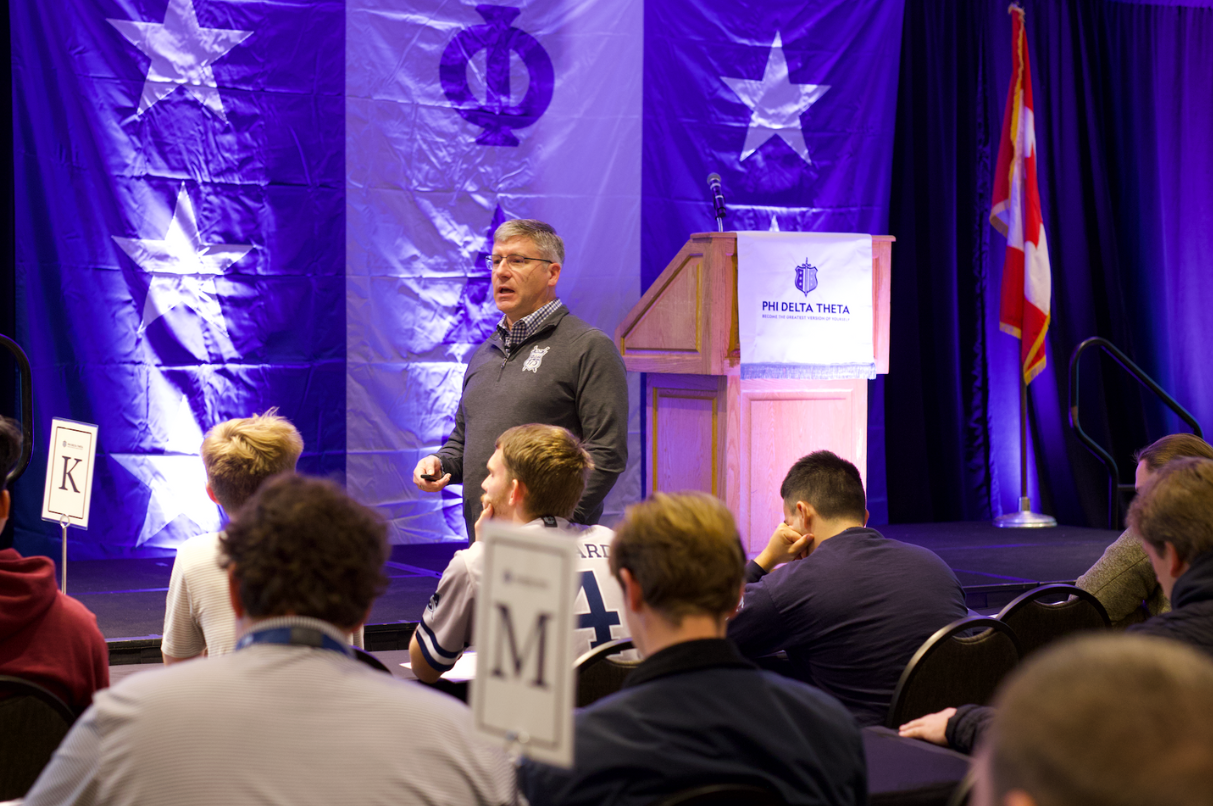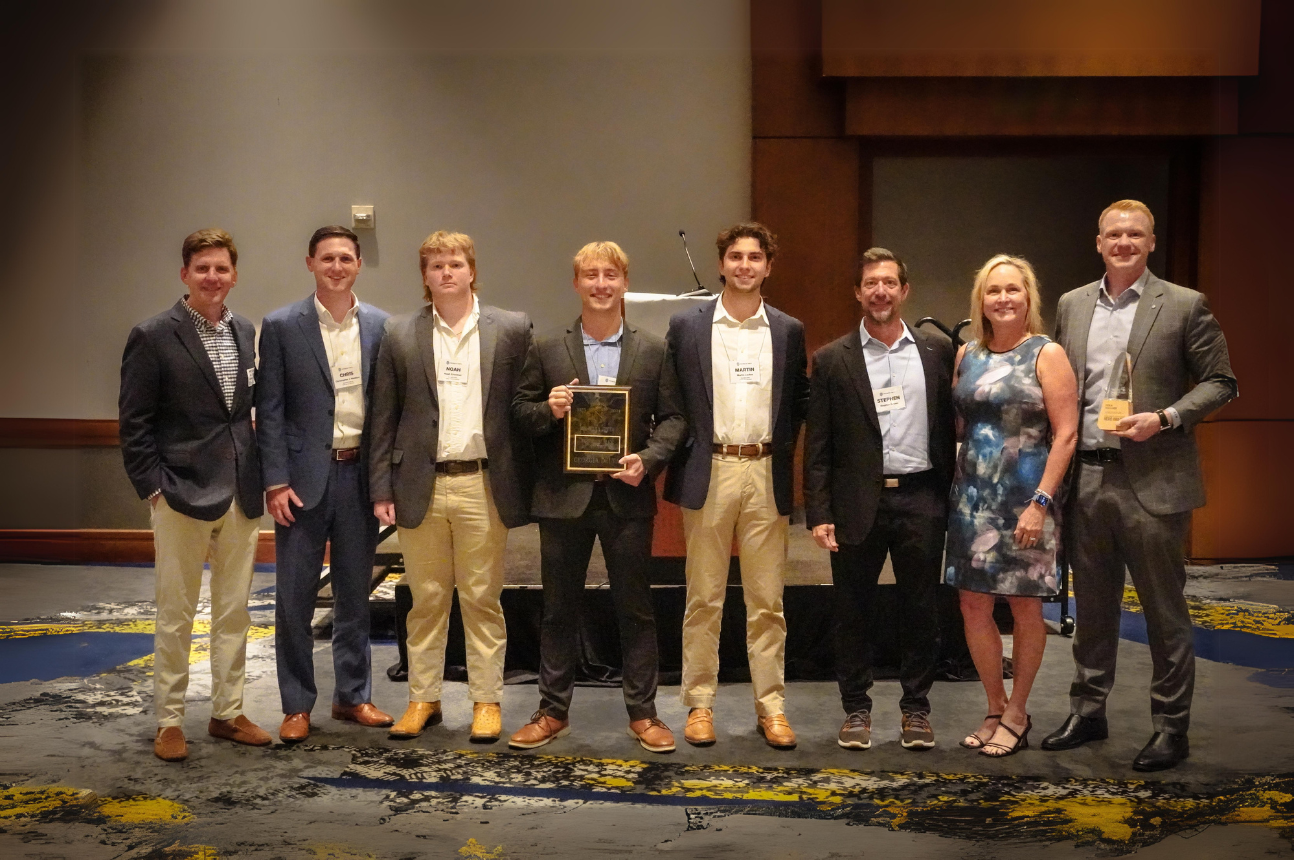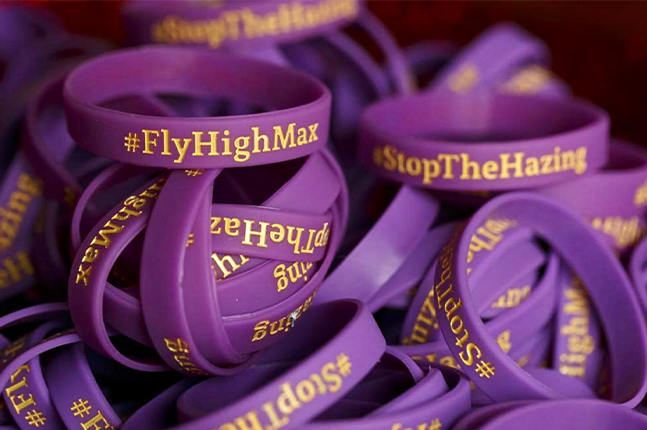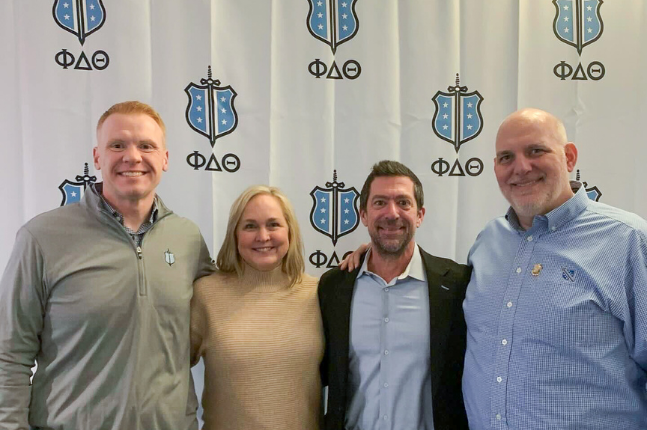By Scott Mietchen, General Council President
Hazing: As the International President of Phi Delta Theta, I realize that anytime I say or write this word many of our members, both undergraduate and alumni, roll their eyes and expect to hear yet another lecture on the litany of reasons why hazing has no place in the Greek movement in general, or in our Fraternity specifically. However, this piece isn’t directed at the members of Phi Delta Theta. Instead it is directed at one of the most powerful, thoughtful and influential men in the world of sports: Roger Goodell, the Commissioner of the National Football League.
You see, while the words “fraternity” and “hazing” are often associated together, the problem of hazing exists in many areas of our society including professional, college and high school athletics. I refuse to accept the common perception that hazing is just a college fraternity/sorority problem. In fact, I believe that national fraternities and sororities, and their respective chapters, do more to try and combat hazing then any organizations I can think of. I realize that the Greek system gets most of the focus and I realize we have yet to completely end these practices within our own organizations, even though we have been waging the fight against hazing for decades. However, we Greeks cannot combat hazing alone without key partners joining with us to end these stupid, pointless, harmful and sometimes dangerous traditions. In fact, it makes it more difficult for us to combat hazing in our own ranks, when the media celebrates acts of hazing in shows such as the HBO series “Hard Knocks,” where it humorously profiled hazing in the NFL this past season.
That is why I was so pleased to read this past week that Jack Del Rio, Head Coach of the Jacksonville Jaguars, has banned hazing this year from the Jaguars rookie training camp after things got out of hand in 2010. Coach Del Rio defended his decision by saying that players needed to have more respect for each other in order to be better teammates. And with his simple order, hazing stopped in the Jaguars training camp. And just this week Jason Garrett, Head Coach of the Dallas Cowboys, followed suit with a similar ban for his team.
For a coach to take this step in the NFL is important because it can trickle down to other NFL teams, and then into collegiate and high school athletics. Ask any high school athlete, coach or referee about hazing and you will hear some incredible stories. You can simply Google “high school sports hazing” and read an astonishing number of deplorable stories. The NFL serves as a role model to high school and collegiate athletes whether it accepts the role or not. And when hazing is accepted, and even celebrated, in the NFL, it makes it more acceptable at the high school and collegiate levels by conditioning students that hazing is an acceptable team-building behavior.
I am asking NFL Commissioner Roger Goodell for help. Last September, I wrote Commissioner Goodell a letter asking for his leadership in addressing hazing in the NFL and offering as help Phi Delta Theta’s 30 years of experience in fighting the issue. That request for help from the Commissioner and offer of assistance by our Fraternity stands today. The NFL sets the tone for many norms in our society and the players, coaches and owners do indeed serve as role models for our youth. Their leadership on any issue can make a difference. Their leadership to join the fight against hazing just might even save a life.
At the time I wrote Commissioner Goodell last fall, there were many other things on his plate including the recently completed contract talks between the players and owners. Those talks are now completed, the players are back in training camp and the NFL will most likely have another record breaking season. Unfortunately the Commissioner missed an opportunity to ban hazing with the recently completed collective bargaining agreement.
While I realize that there is much the Commissioner’s office does throughout the year on a wide variety of issues, I would hope that he may see the steps recently taken by the Jaguars and Cowboys as an opportunity to use his position of leadership to begin stamping out hazing in the NFL. His actions now may help lead to the elimination of hazing in other levels of sports, which can also help us in our fight against hazing. Commissioner Goodell has the unilateral ability to draw the line in the sand regarding behavioral standards in the NFL, an authority he has used in the past to deal with other issues which are viewed as a threat to the league and/or its players. I believe the Commissioner has the decency to take a stand that can affect thousands of young men and women who may never play in his league. And beyond the illegality of hazing in many states, it’s just stupid, wrong and harmful.
I’m not suggesting that we blame hazing within our organization on the NFL – far from it. Phi Delta Theta will continue its on-going efforts to stamp out hazing in our own organization regardless of what others do. However, I am suggesting that the active and vocal leadership of Commissioner Goodell on this issue could impact many parts of society for decades to come.
Commissioner Goodell, you have the ability to unilaterally stop hazing in the NFL. All it takes from you is the stroke of a pen. Please consider joining us in this effort, as it will have very positive consequences far beyond the gates of the National Football League.
Brother Mietchen is the General Council President. Scott is a 1984 graduate of the University of Utah where he earned both his B.S. and MPA. He has served the Fraternity as a chapter consultant, chapter adviser, house corporation president, province president, delegate to the NIC and member of the General Council from 1994-2000 and 2004-Present. Scott became an Iron Phi in 2010. Professionally Scott is President and Managing Partner of Fund Raising Counsel, Inc. (FRCI), the oldest fundraising consulting firm in the Intermountain West. He was recognized as Fund Raiser of the Year in 2006 by the Utah Society of Fund Raisers. Prior to joining FRCI, he served as Vice President for University Advancement at Utah State University. Scott, his wife Lisa, and their children, Abby (17) and Alex (14) live in Salt Lake City.





